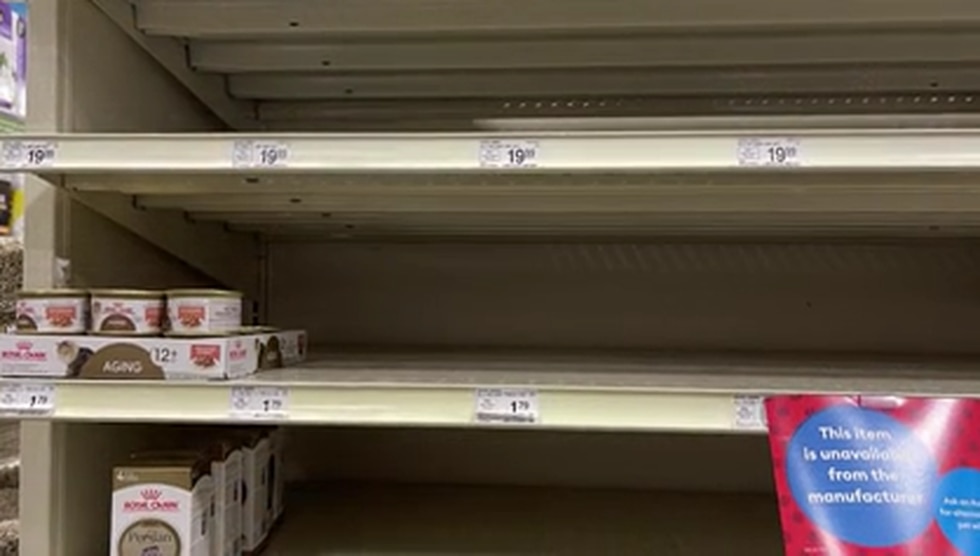- February 12, 2022
- No Comment
- 5 minutes read
Pet food in short supply across the US – WVLT.TV

MEMPHIS, Tenn. (WMC) – There’s a pet food shortage in America.
More people adopting animals during the pandemic, a shortage of aluminum cans, and a slowdown at manufacturing plants are all adding up to stress for pet owners who are trying to keep picky pets happy and healthy.
“It’s been such a nightmare,” said Veterinarian Jennifer Karnes at Central Animal Hospital in Midtown Memphis. “People are really concerned about it.”
Karnes said the pet food shortage is problematic. Store shelves are bare and prescription pet foods are getting harder to find.
“If your cat or dog has skin allergies or if they have GI issues that require special diets, those are difficult to get,” she said.
Mid-Southerners shared their experiences with trying to find pet food on social media.
JMTigers1974 tweeted, “My cats are picky. The food I buy for them at PetSmart has been challenging to come by so I buy 2 or 3 weeks’ worth when they have it.” GranJacke901 agreed, “Finding cat food has been very frustrating,” she posted to Twitter. “The few kinds my cats like have been out of stock for weeks at Target. They are also out of stock on Chewy.com.”
Action News 5′s Joyce Peterson has three cats. One of her three cats, Stormy, requires a prescription diet to stay healthy. He suffers from idiopathic cystitis, a condition that causes inflammation of his bladder and bloody urine. Without his special food, he could be prone to more painful flare-ups.
“So, urinary diets are some of the most important for cats,” said Karnes. “You can still get some of the flavors. But you can’t get all of the flavors anymore.”
Chewy is out of the one brand of food Stormy will eat. The manufacturer, Royal Canin, posted a note on the homepage of its website saying:
“ROYAL CANIN® has experienced incredible growth in demand for our products at a time when a broader global crisis is putting additional strain on all of us. Despite our best efforts to supply enough of our diets to meet the increased demand, we recognize that we are not meeting your expectations, nor ours.
Our entire team is committed to getting your cats and dogs the tailored nutrition they deserve. In the meantime, we will be prioritizing the diets we believe are most critical to the health and wellbeing of pets for the time being. Because of that, you may experience difficulty purchasing certain products in the coming months.
To better serve you while our team works to resolve the supply challenges, we have expanded our customer care service operations. If you need an alternative diet recommendation or help locating a product, please contact our Nutritional Advisors at 800-592-6687 or via Live Chat.
Thank you for your patience as we work hard to deliver precise and effective nutrition to meet your pet’s unique needs.”
“They are saying hopefully by the early spring, their line will be reduced, but up and running,” Karnes said. “But some of those types of food may never come back.”
She said she has clients who are resorting to making their own pet food.
“When done in conjunction with a veterinary nutritionist, it’s fine. But that’s not something you want to start off doing by yourself. You want to make sure it’s properly balanced,” Karnes said.
She also recommends switching your pet to a new food gradually, if possible. Fifty/fifty for five to seven days and then gradually transition to the other one over the next week. Some animals will experience tummy upset with new foods, including vomiting or diarrhea.
“Before making any big changes, check with your veterinarian if your pet is sick. Don’t just change willy nilly,” Karnes warned.
Copyright 2022 WMC. All rights reserved.
Click here to sign up for our newsletter!
Click here to report a spelling or grammar error. Please include the headline.

